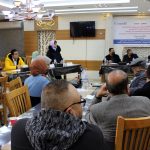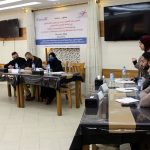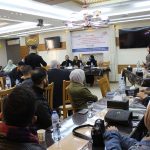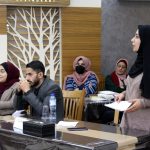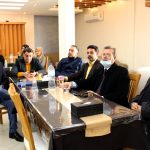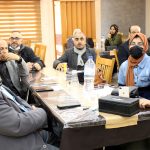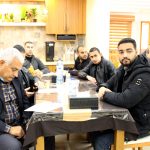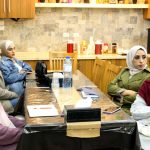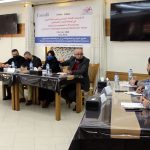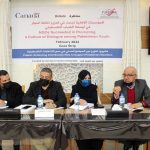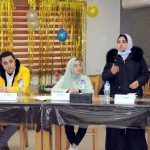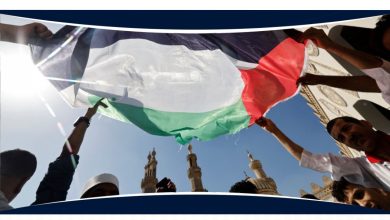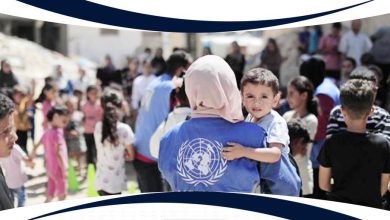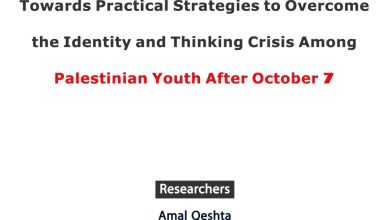Pal-Think concludes set of debates with active youth participation
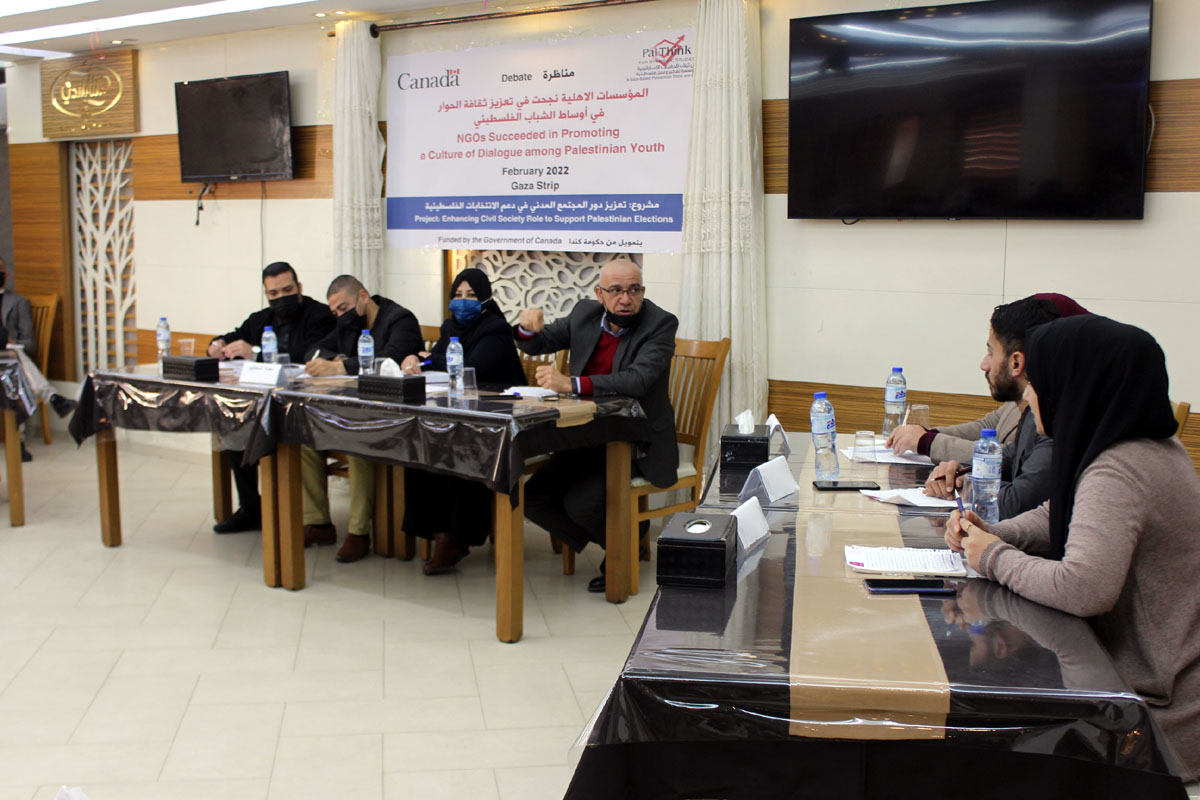
Pal-Think for Strategic Studies carried out the last debate entitled “NGOs succeeded in promoting a culture of dialogue among Palestinian youth”. That is part of the project “Enhancing Civil Society Role to Support Palestinian Elections” funded by the Government of Canada. It aims to involve youth in community development and promote democratic concepts through finding solutions to community and rights issues.
The debate was opened by Project Coordinator Ms. Sally El-Sammak who welcomed the audience and gave an overview of the project and his stages in the partnership with the Government of Canada.
She added: “Although it was the first experience for the participants in the recent debate, they were distinguished by the strength of their argument and the accuracy of their information, and they became part of the debate team in Pal-Think.”
In turn, the Director of Pal-Think Mr. Omar Shaban said that he was pleased to see the participants and attendees.
He said: “We are a small institution that creates awareness in society in partnership with many local and international actors. We have worked extensively over the past period to raise awareness on elections, and we are proud that we always get the higher assessment from our international partners. “
He added: “We are always proud to see Pal-Think trainees now boasting important locations in society, holding awareness sessions and serving a wide audience.”
Mr Omar highlighted that he hopes panelists would be part of the future Palestinian leadership system.
In a message to youth, he concluded: “What is important is to learn how to conduct a dialogue based on scientific evidence, and to learn to convince the other side of your thoughts in a meticulous manner; because most of the conflict between the major Powers today is based on public information discourse.”
The debate was moderated by the political researcher, Dr Talal Abu Rokba, who said: “What Pal-Think is doing is restoring a culture that is missing in the Palestinian situation and a culture of dialogue through Palestinian debates. The primary task is to make young people able and effective to play an important role in the overall Palestinian situation; to restore to the long-standing features of diversity and tolerance of Palestinian society. “
The group of supporters are: Asil Zainuddin 23 and Nour Nassar 21, and lawyer Ashraf Sokar. They supported the following ideas:
- Community institutions have succeeded in promoting a culture of dialogue among young people by holding many events and debates on different issues such as those held by Pal Think.
- The absence of student election boards in universities is a result of political division rather than the youth themselves.
- There has been a marked development among young people in recent years, despite the division and political problems that destabilize the overall situation.
On the other side, journalist Angie Abdel-Aal 23, social worker Hadeel Zakout 25, and lawyer Waseem Ludid 28, are the opposing team. They opposed the earlier ideas. Their arguments were as follows:
- The prevalence of couples and youth violence, most recently the recent murder in Beit Hanoun, is evidence of the failure of community institutions to promote a culture of dialogue among young people.
- The absence of student elections councils at Palestinian universities is a result of the absence of peaceful dialogue among young people.
- The failure of civil society institutions to create a genuine system of dialogue among Palestinian youth or to promote dialogue in many marginalized areas.
After the debate ended, the judgement comity consisting of the journalist Tagreed Al-Amour, the author Yasser Al-Ghul, and the community activist and General Union of Cultural Centers coordinator Moussa Abu Zayed announced that the supporters had won the debate.
The judgement comity gave several recommendations to both groups: make sufficient effort to convince the other party of the argument it opposes, to use peaceful and constructive dialogue rather than offensive rhetoric, to make optimal use of time to present ideas, to work to strengthen the methods of refuting the dissent’s arguments, and to pay attention to the terminology used.
Audience questions were about the source of the information and statistics used by the groups, about tools to measure the success of civil society organizations in promoting a culture of dialogue among young people, and about the relationship of hate speech and social media incitements in the failure to promote a culture of dialogue among young people.
It should be noted that all the panelists have become permanent members of the Pal Think debate Panel and will participate in other debates with their counterparts from different institutions. They will also contribute to educating their peers about the importance of debates and the dissemination of training they have received with others.
The designations employed and the representation of material in these meetings do not imply the expression of any opinion whatsoever on the part of the Government of Canada.”

